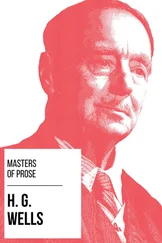relief, and assumed an easier position on the edge of her table.
"But if you weren't keen on the suffrage business, why on earth
did you go to prison?"
Ann Veronica reflected. "It was a phase," she said.
He smiled. "It's a new phase in the life history," he remarked.
"Everybody seems to have it now. Everybody who's going to develop
into a woman."
"There's Miss Garvice."
"She's coming on," said Capes. "And, you know, you're altering
us all. I'M shaken. The campaign's a success." He met her
questioning eye, and repeated, "Oh! it IS a success. A man is so
apt to--to take women a little too lightly. Unless they remind
him now and then not to. . . . YOU did."
"Then I didn't waste my time in prison altogether?"
"It wasn't the prison impressed me. But I liked the things you
said here. I felt suddenly I understood you--as an intelligent
person. If you'll forgive my saying that, and implying what goes
with it. There's something--puppyish in a man's usual attitude
to women. That is what I've had on my conscience. . . . I don't
think we're altogether to blame if we don't take some of your lot
seriously. Some of your sex, I mean. But we smirk a little, I'm
afraid, habitually when we talk to you. We smirk, and we're a
bit--furtive."
He paused, with his eyes studying her gravely. "You, anyhow,
don't deserve it," he said.
Their colloquy was ended abruptly by the apparition of Miss Klegg
at the further door. When she saw Ann Veronica she stood for a
moment as if entranced, and then advanced with outstretched
hands. "Veronique!" she cried with a rising intonation, though
never before had she called Ann Veronica anything but Miss
Stanley, and seized her and squeezed her and kissed her with
profound emotion. "To think that you were going to do it--and
never said a word! You are a little thin, but except for that
you look--you look better than ever. Was it VERY horrible? I
tried to get into the police-court, but the crowd was ever so
much too big, push as I would. . . .
"I mean to go to prison directly the session is over," said Miss
Klegg. "Wild horses--not if they have all the mounted police in
London--shan't keep me out."
Part 6
Capes lit things wonderfully for Ann Veronica all that afternoon,
he was so friendly, so palpably interested in her, and glad to
have her back with him. Tea in the laboratory was a sort of
suffragette reception. Miss Garvice assumed a quality of
neutrality, professed herself almost won over by Ann Veronica's
example, and the Scotchman decided that if women had a
distinctive sphere it was, at any rate, an enlarging sphere, and
no one who believed in the doctrine of evolution could logically
deny the vote to women "ultimately," however much they might be
disposed to doubt the advisability of its immediate concession.
It was a refusal of expediency, he said, and not an absolute
refusal. The youth with his hair like Russell cleared his throat
and said rather irrelevantly that he knew a man who knew Thomas
Bayard Simmons, who had rioted in the Strangers' Gallery, and
then Capes, finding them all distinctly pro-Ann Veronica, if not
pro-feminist, ventured to be perverse, and started a vein of
speculation upon the Scotchman's idea--that there were still
hopes of women evolving into something higher.
He was unusually absurd and ready, and all the time it seemed to
Ann Veronica as a delightful possibility, as a thing not indeed
to be entertained seriously, but to be half furtively felt, that
he was being so agreeable because she had come back again. She
returned home through a world that was as roseate as it had been
gray overnight.
But as she got out of the train at Morningside Park Station she
had a shock. She saw, twenty yards down the platform, the shiny
hat and broad back and inimitable swagger of Ramage. She dived
at once behind the cover of the lamp-room and affected serious
trouble with her shoe-lace until he was out of the station, and
then she followed slowly and with extreme discretion until the
bifurcation of the Avenue from the field way insured her escape.
Ramage went up the Avenue, and she hurried along the path with a
beating heart and a disagreeable sense of unsolved problems in
her mind.
"That thing's going on," she told herself. "Everything goes on,
confound it! One doesn't change anything one has set going by
making good resolutions."
And then ahead of her she saw the radiant and welcoming figure of
Manning. He came as an agreeable diversion from an insoluble
perplexity. She smiled at the sight of him, and thereat his
radiation increased.
"I missed the hour of your release," he said, "but I was at the
Vindicator Restaurant. You did not see me, I know. I was among
the common herd in the place below, but I took good care to see
you."
"Of course you're converted?" she said.
"To the view that all those Splendid Women in the movement ought
to have votes. Rather! Who could help it?"
He towered up over her and smiled down at her in his fatherly
way.
"To the view that all women ought to have votes whether they like
it or not."
He shook his head, and his eyes and the mouth under the black
mustache wrinkled with his smile. And as he walked by her side
they began a wrangle that was none the less pleasant to Ann
Veronica because it served to banish a disagreeable
preoccupation. It seemed to her in her restored geniality that
she liked Manning extremely. The brightness Capes had diffused
over the world glorified even his rival.
Part 7
The steps by which Ann Veronica determined to engage herself to
marry Manning were never very clear to her. A medley of motives
warred in her, and it was certainly not one of the least of these
that she knew herself to be passionately in love with Capes; at
moments she had a giddy intimation that he was beginning to feel
keenly interested in her. She realized more and more the quality
of the brink upon which she stood--the dreadful readiness with
which in certain moods she might plunge, the unmitigated
wrongness and recklessness of such a self-abandonment. "He must
never know," she would whisper to herself, "he must never know.
Or else--Else it will be impossible that I can be his friend."
That simple statement of the case was by no means all that went
on in Ann Veronica's mind. But it was the form of her ruling
determination; it was the only form that she ever allowed to see
daylight. What else was there lurked in shadows and deep places;
if in some mood of reverie it came out into the light, it was
presently overwhelmed and hustled back again into hiding. She
would never look squarely at these dream forms that mocked the
social order in which she lived, never admit she listened to the
soft whisperings in her ear. But Manning seemed more and more
clearly indicated as a refuge, as security. Certain simple
purposes emerged from the disingenuous muddle of her feelings and
desires. Seeing Capes from day to day made a bright eventfulness
that hampered her in the course she had resolved to follow. She
vanished from the laboratory for a week, a week of oddly
interesting days. . . .
When she renewed her attendance at the Imperial College the third
finger of her left hand was adorned with a very fine old ring
with dark blue sapphires that had once belonged to a great-aunt
Читать дальше












